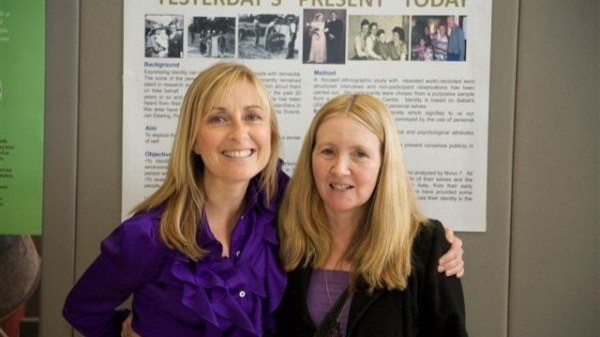The SDRC’s Research Involvement blog series, features all types of research from across Scotland. This blog series shares experiences of different perspectives of research as well as tips and lessons for researchers. Our latest blog in this series is from Margaret Hence, who does her own research, inspired by her experience as a carer.
Bridging Care and Research: My Journey as a Family Carer and Researcher
Caring is a word often used lightly, yet in reality it is a profound commitment that can shape every aspect of life. My journey as a family carer for a dear friend, an academic but chronic alcoholic was challenging. I worked a programme, and he stopped lifelong drinking, but I found that is where a whole lot of other work starts. I relinquished my senior nursing career and doctorate as caring got extremely stressful. I did manage to get an MPhil in dementia research where I explored identity in people living with dementia. My friend has mild cognitive impairment which can be challenging. At first, the focus was purely on navigating daily challenges, appointments, and crises that often arose without warning. However, over time, I found myself asking deeper questions: Why is care delivered this way? Who decides what good care looks like? Where are the voices of families who live with this day in, day out?
These questions drew me towards research. As I learned more about the systems surrounding dementia care, I realised that despite the abundance of policies, guidelines, and studies, there remains a striking gap between lived reality and professional knowledge. Families and people like me carry extensive experiential expertise, yet too often our knowledge is overlooked in favour of professional assumptions or time-limited observations.
My role as a researcher has developed alongside my caring role. I began engaging with research networks, attending conferences, and contributing to studies to ensure that the reality of families is not hidden under tidy academic conclusions. In May, I presented a poster at the Royal College of Physicians in Edinburgh, sharing insights about the harm that can arise when paid services fail to engage meaningfully with families, and how this affects both immediate wellbeing and long-term health through stress and cortisol release. I highlighted how systemic dismissiveness can impact DNA repair and cellular health, as stress becomes embedded physically, not just emotionally.
I am also passionate about raising awareness beyond academia. Recently, I wrote an article for Dementia Awareness Week, emphasising the simple but vital message: Listen to those who live it. This phrase encapsulates my daily experience of seeing knowledge overlooked, despite families carrying unparalleled understanding of nuanced symptoms, patterns of change, and emotional impact. It also drives my desire to see mandatory dementia education extended far beyond specialist settings, to all services, businesses, and public sectors.
My dual identity as carer and researcher is not always easy. Balancing academic work, advocacy, and daily caring responsibilities requires constant adaptation. Research deadlines do not wait for care crises, and care crises do not pause for research deadlines. Yet I believe it is precisely this reality that strengthens my contributions. Lived experience brings authenticity, grounding theory in the complexity of human life.
Being part of SDRC has allowed me to connect with others who understand the importance of including people with lived experience in shaping research questions and outcomes. It has also offered spaces to share my insights, learn from others, and remind myself that while the caring role can feel isolating, there are communities striving for change.
Looking forward, I aim to continue building bridges between care and research. I hope to see greater recognition of the knowledge carers hold, not as an afterthought but as a vital component of research, policy, and practice. True co-production goes beyond consultation; it values and integrates lived expertise alongside academic expertise to create interventions and systems that genuinely work for those they are meant to support.
In everything I do, my motivation remains the same: to ensure that families are not invisible, that their knowledge is valued, and that people living with dementia, and those who care for them, receive the respect and understanding they deserve.
Listen to those who live it.
Thank you so much Margaret for writing this blog and sharing your insights of life as both a researcher and a carer. If you are an SDRC member and would like to contribute to this series, please get in touch.

